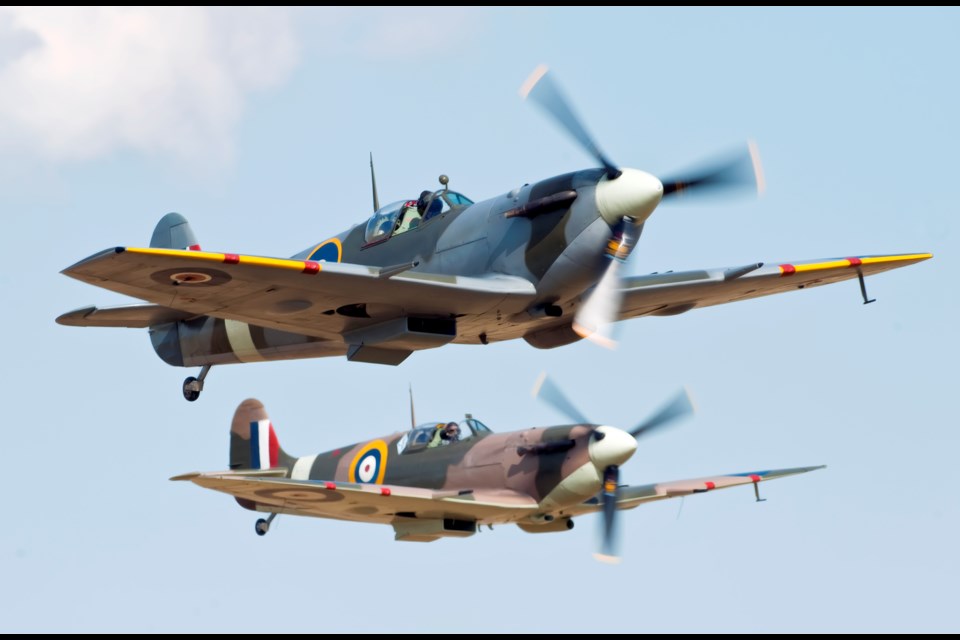After France fell to the Germans in June 1940 during the Second World War, the Nazis turned their attention to Great Britain and began preparations to invade the island nation.
The situation looked grim for the United Kingdom and her allies — including Canada — which prompted British Prime Minister Winston Churchill to assess the upcoming peril.
“… the Battle of France is over. I expect that the Battle of Britain is about to begin … ,” Churchill told the House of Commons on June 18, 1940. “The whole fury and might of the enemy must very soon be turned on us. Hitler knows that he will have to break us in this Island or lose the war … .
“Let us, therefore, brace ourselves to our duties, and so bear ourselves that, if the British Empire and its Commonwealth last for a thousand years, men will still say, ‘This was their finest hour.’”
That “finest hour” came quickly, as the Nazi war machine began the first major military campaign of that war fought entirely by air forces. Running from July 10, 1940, to Oct. 31, 1940, the offensive saw Nazi Germany attempt to eliminate the Royal Air Force as a preamble to invading Great Britain.
More than 100 Canadians from the Royal Canadian Air Force (RCAF) participated, with 23 dying during the campaign, including Pilot Officer C.R. Bonseigneur from Gull Lake, Sask.
“Winston Churchill’s important words foreshadowed what would become one of the most important battles of the Second World War. With Allied troops pushed off the European continent entirely, only a few hundred fighter pilots stood in the way of Hitler’s massive air attack on England,” said Col. Jonathan Bouchard, Wing Commander of 15 Wing Air Base, during a ceremony on Sept. 19 to honour the 81st anniversary of the battle.
“For the first time in history, an entire nation would be protected by air power alone.”
The odds appeared insurmountable, while the results of the pilots’ failure would be unbearable, he continued. It was up to the UK and its allies to hold off the German invasion.
“For many Canadian crewmen, the Battle of Britain was baptism by fire. Of the 2,300 British airmen and the 574 allied pilots … 117 were Canadians,” Bouchard said, noting the RCAF squadron commander — from Rosthern, Sask. — did not think his pilots were ready.
During the Battle of Britain, the average life expectancy of an Allied pilot was four weeks. Meanwhile, it didn’t seem as if the Allies could withstand the German onslaught, he continued. Pilots were tiring out from the continued flying, while the Allies lost flyers faster than they could replace them.
However, the Germans switched from bombing airfields to bombing London. This allowed the Allies to regroup and, much to the surprise of the Germans, send out hundreds of new fighter planes to counter the enemy aerial armadas.
Two days after the climatic Sept. 15 air battle, Hitler cancelled the planned invasion.
“The unsung heroes of the Battle of Britain were the ground support personnel, who constantly exposed themselves to attack by the enemy while struggling to keep the fighters serviceable,” Bouchard said. “These valiant men and women suffered heavy casualties for their effort, but without them, the battle could not have been won.
“The heroes of the Battle of Britain represent the very best of what it means to be Canadian … .”
15 Wing Moose Jaw salutes the pilots who fought in the Battle of Britain and celebrates the heritage that these veterans left behind, he added. Society must never forget their efforts.
After the Battle of Britain finished, Churchill uttered his now-famous phrase: “Never in the field of human conflict was so much owed by so many to so few.”




